20 Years of Building Bridges
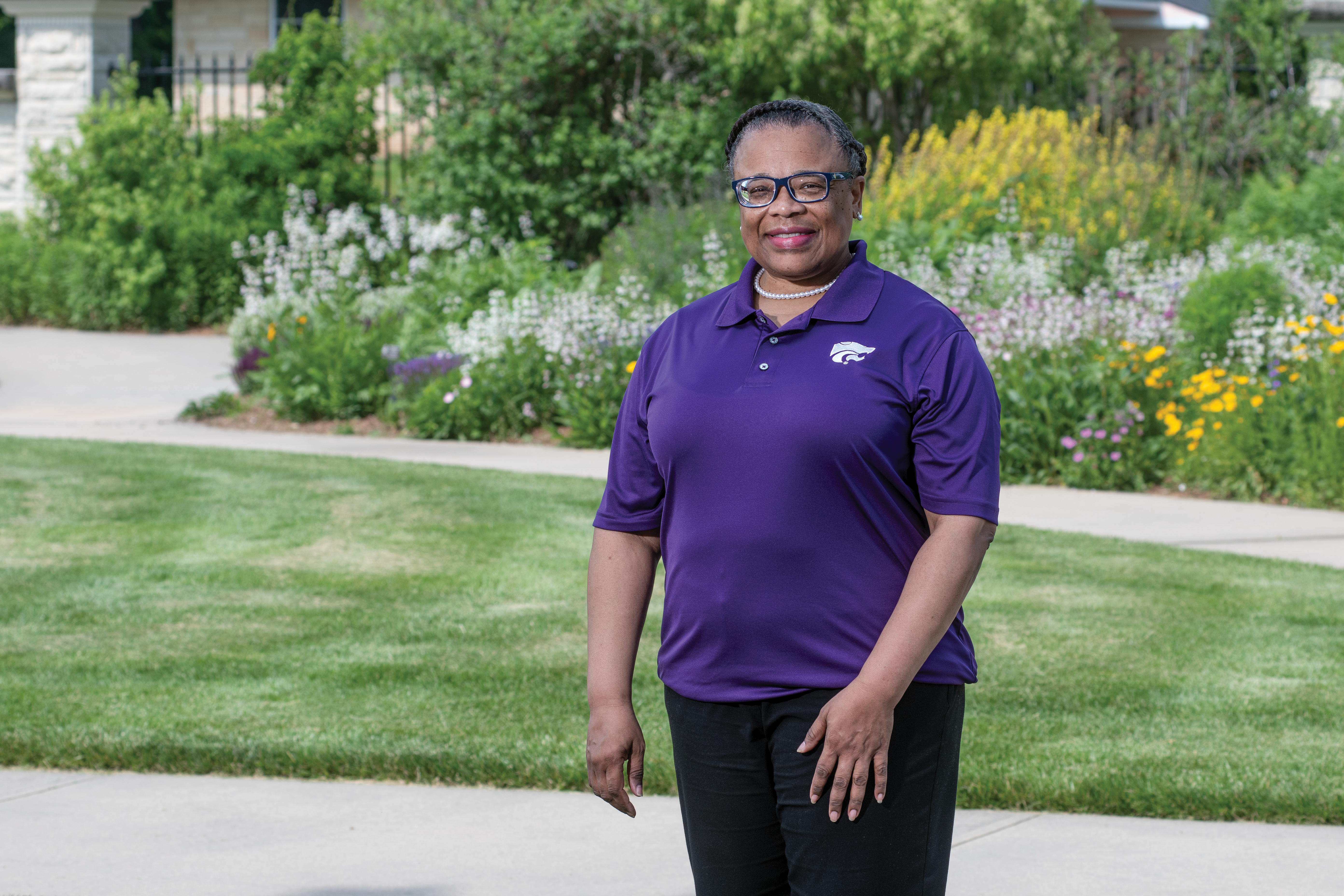 Zelia Wiley reflects on two decades at K-State
Zelia Wiley reflects on two decades at K-State
By Jerry Grasso
Photo by Dan Donnert
As a precocious and inquisitive teenager rigorously studying at the High School for Engineering Professionals at Paul Laurence Dunbar High School in Fort Worth, Texas, Zelia Wiley knew she was preparing herself to be a problem solver, possibly even a bridge builder. She just didn’t know that this would be a much more figurative statement, rather than a literal one, when defining her successful professional career.
Wiley has studied and led diversity and agriculture programs across different regions of the U.S. – first earning a bachelor’s degree in agricultural economics in 1989 and then a master’s degree in agricultural education and human resources in 1991 from Prairie View A&M University, then she completed her doctorate at Penn State University in 1996. Her career then took her to the University of Kentucky’s College of Agriculture in Lexington, and finally, for the past 20 years, to K-State as the assistant dean of diversity programs for the College of Agriculture and K-State Research and Extension. Wiley is responsible for the recruitment and retention programs of ethnic minorities within the college and works to increase the minority ethnicity application pool in K-State Research and Extension.
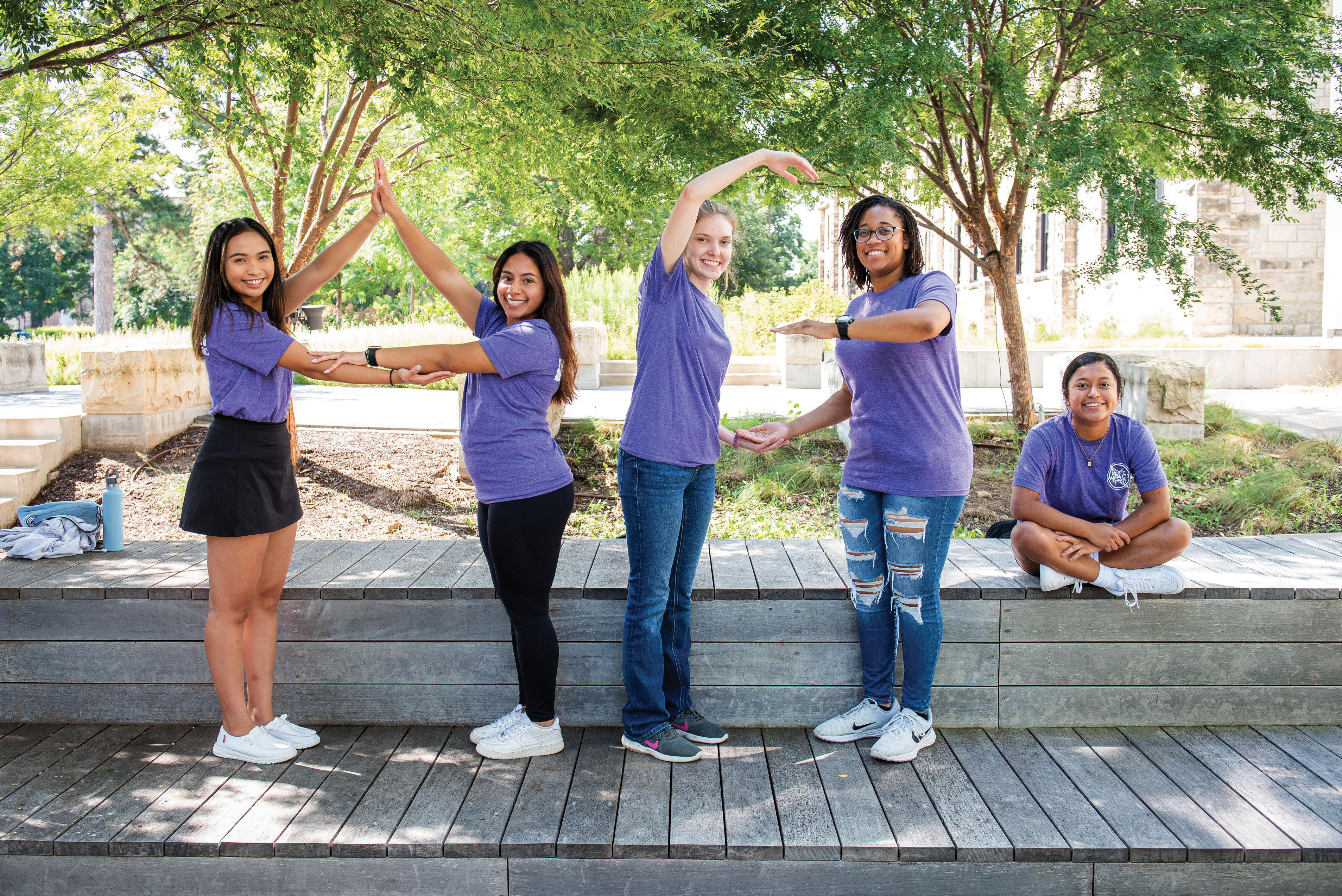 “I was excited to come to Manhattan in 2003,” remembered Wiley. “At Kentucky, my appointment was 51% extension and 49% teaching. I was tasked with meeting an extension goal of ensuring that the organization’s personnel mirrored that state’s demographics.”
“I was excited to come to Manhattan in 2003,” remembered Wiley. “At Kentucky, my appointment was 51% extension and 49% teaching. I was tasked with meeting an extension goal of ensuring that the organization’s personnel mirrored that state’s demographics.”
“Though I checked the boxes on the objective and made progress at the University of Kentucky, I wasn’t dealing a lot with students. The opportunity at Kansas State was, and is, very much student driven – 80% teaching, 10% extension and 10% research. I was excited and eager for the opportunities at K-State,” she said.
When Wiley joined K-State’s College of Agriculture, she became the university’s first assistant dean for diversity for any college on campus. At the time, the only other multicultural leader was an associate provost for diversity. “At that time, ‘diversity’ was the buzzword of choice,” said Wiley. “Today, we have a complete acronym: DEI & B (Diversity, Equity, Inclusion and Belonging).
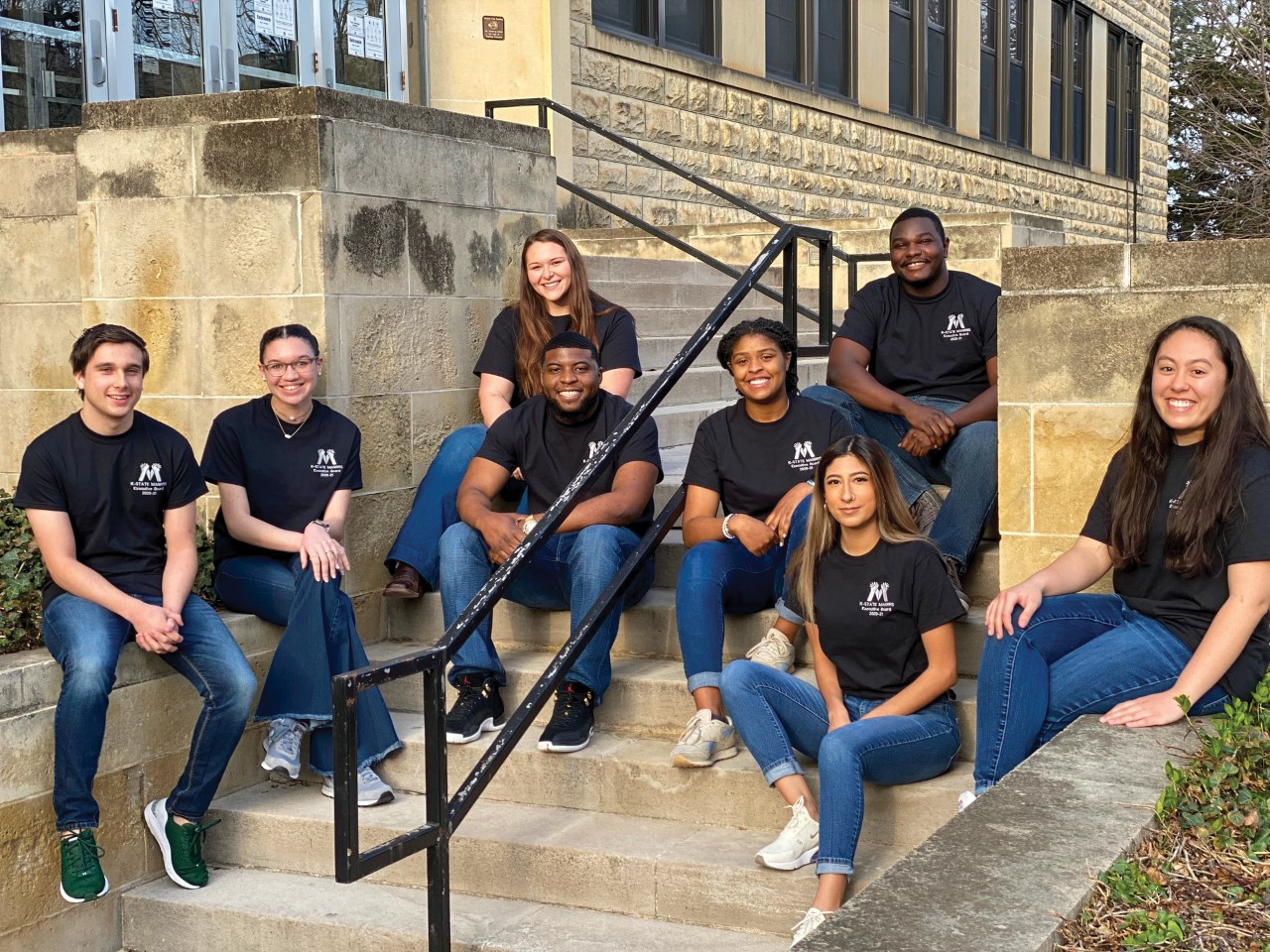
“In my first year only two percent of students were domestic minorities in the college – and since then we’ve substantially increased the student population,” she said. “In 2023, not only do we have a more diverse, multicultural student population, but all the students can be themselves and feel safe to be so. This in and of itself is an achievement.”
Success has been steady year-over-year since 2003. From 2003 until 2023, the College of Agriculture increased multicultural graduate students by 224%. It also increased multicultural undergraduate student enrollment by 453% from 2003 to 2022. Statistics and measurements such as this are key to the impact of DEI & B, and how the results help drive and shape leadership discussions.
“In 2003, we did not have any metrics, or even any ideas, around measurement and data,” Wiley stated. “Today, we can measure every angle – from retention to drop out numbers. But the real impact isn’t in the numbers themselves, but the conversations they have helped to drive. Multicultural and multi-ethnic concerns, issues and approach are part of ongoing strategic planning.
“DEI & B is threaded to the dialogue about the future of the college, and of course, K-State as a university.”
“It has been an honor for me to work with Dr. Wiley on a variety of projects during our time together,” said Dean Minton. “I have worked with her for many years to bring multicultural students to K-State for a summer research experience.
“My involvement with her through that program has been extremely gratifying. I marvel at the network of contacts she has developed, especially with the nation’s 1890 land-grant universities,” Minton added.
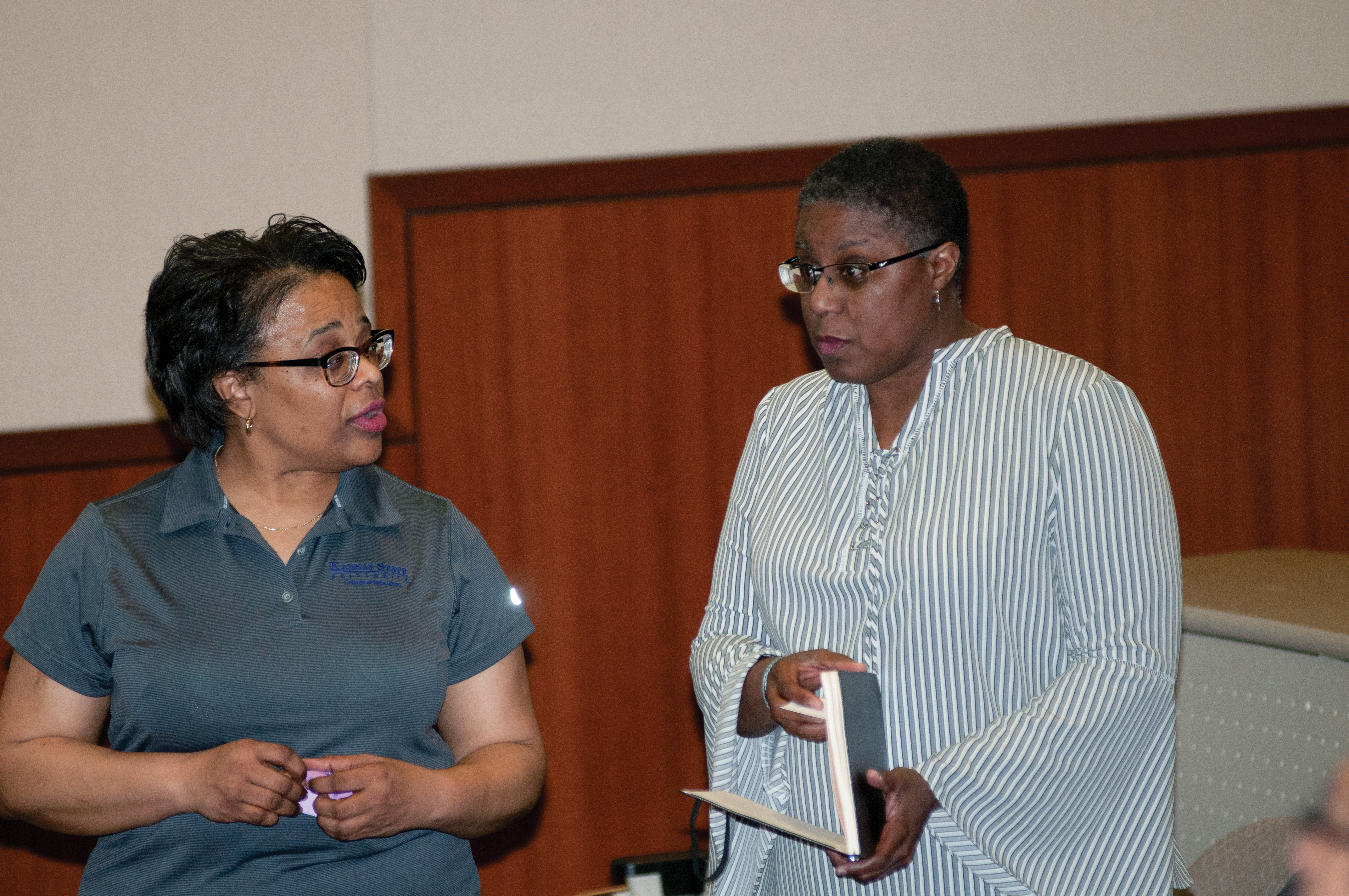 The program Dean Minton refers to is the K-State Research and Extension Fellowship program that Wiley’s Diversity Program Office sponsors. The program is a multicultural undergraduate and graduate summer research program for members of ethnic minority groups and other under-represented groups. Students are paired with faculty in research projects that match a student’s interest. At the end of the program, students are expected to present an oral presentation.
The program Dean Minton refers to is the K-State Research and Extension Fellowship program that Wiley’s Diversity Program Office sponsors. The program is a multicultural undergraduate and graduate summer research program for members of ethnic minority groups and other under-represented groups. Students are paired with faculty in research projects that match a student’s interest. At the end of the program, students are expected to present an oral presentation.
So how does she drive this success?
 “Simply put, K-State has evolved with partners and staff. Across the university there are point people embedded within each college to work with, and at, all campuses – Manhattan, Olathe and Salina. We also have support staff and student workers, many different people and roles ensuring we all work together, understand the definitions of success and aren’t siloed. We have each other to bounce thoughts, ideas and successes off of.”
“Simply put, K-State has evolved with partners and staff. Across the university there are point people embedded within each college to work with, and at, all campuses – Manhattan, Olathe and Salina. We also have support staff and student workers, many different people and roles ensuring we all work together, understand the definitions of success and aren’t siloed. We have each other to bounce thoughts, ideas and successes off of.”
“But of course, the best model of success for any college or student is to see success, and I’m very proud of the multicultural students we have in PhD programs,” Wiley added.
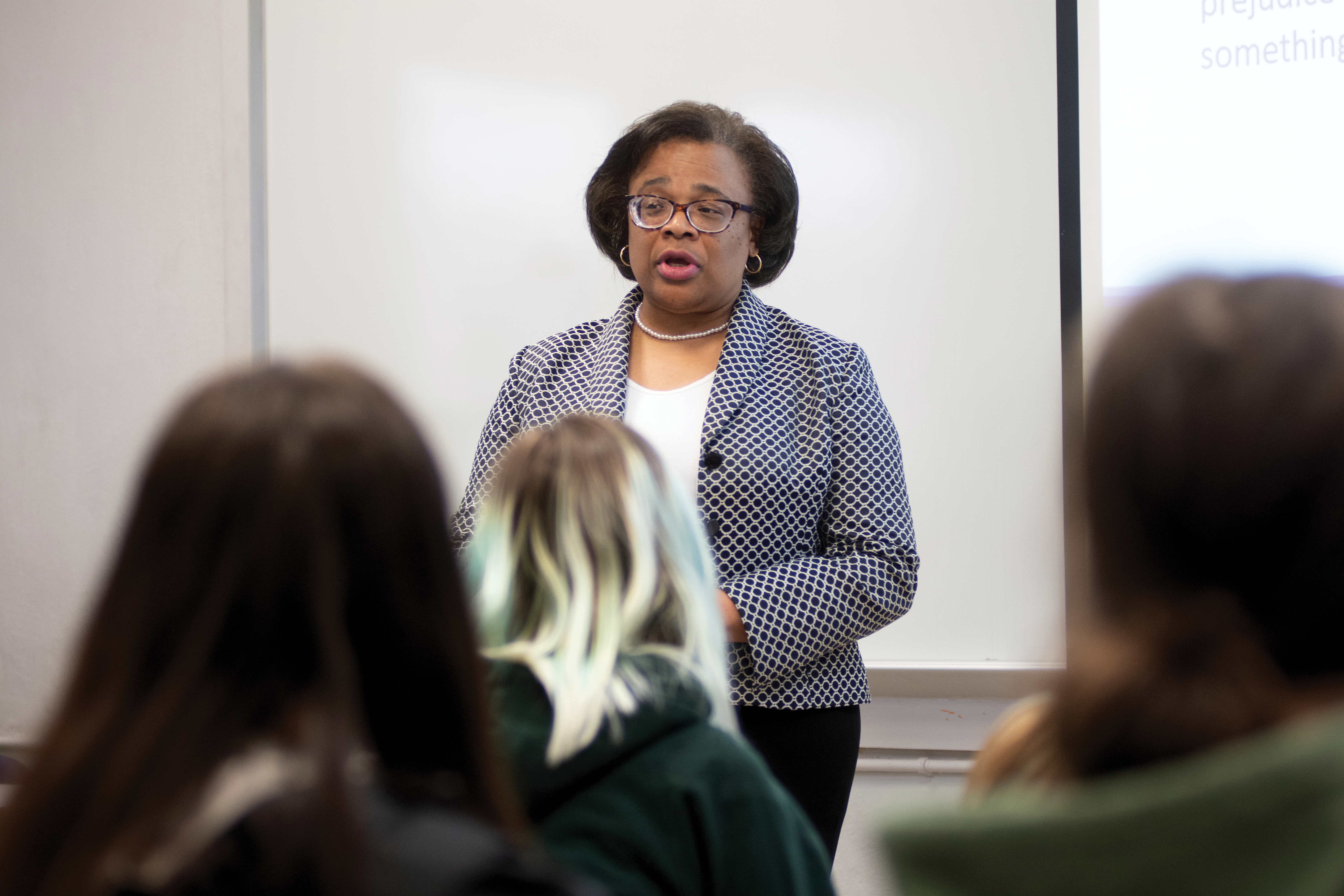 Lonnie Hobbs Jr. is an assistant professor and MANRRS co-advisor at K-State. He’s worked closely with Wiley since 2017 and has personally seen and felt her influence.
Lonnie Hobbs Jr. is an assistant professor and MANRRS co-advisor at K-State. He’s worked closely with Wiley since 2017 and has personally seen and felt her influence.
“Dr. Wiley is the primary reason I chose K-State, and am currently thriving in my program,” said Hobbs. “More specifically, I was explicitly told to attend K-State because of her ability to guide students.
“As ethnic minority students, we are often placed in environments and situations where we understand what we need to do, but do not know where to begin with how to do it and we end up wasting our time and becoming frustrated. Dr. Wiley provides resources and counsel to guide us today and better prepare for tomorrow,” said Hobbs.
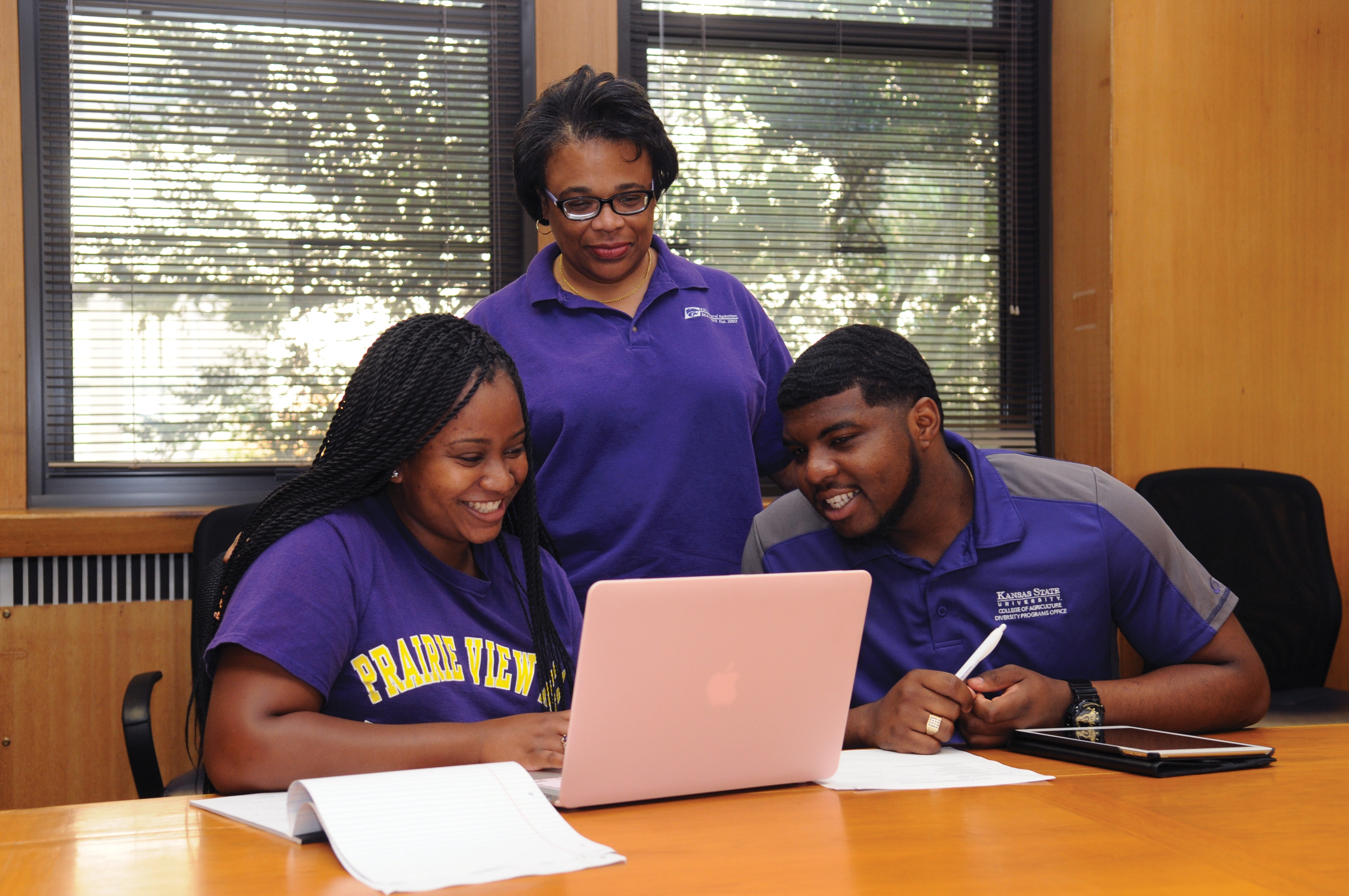 Hobbs added that Wiley provides insight and coaching so students enhance their strengths and improve their weaknesses. “I believe I’m thriving because of her professional and emotional support, and I’ve seen the results with other students across campus, whether they are ethnic or non-ethnic minority students,” he added.
Hobbs added that Wiley provides insight and coaching so students enhance their strengths and improve their weaknesses. “I believe I’m thriving because of her professional and emotional support, and I’ve seen the results with other students across campus, whether they are ethnic or non-ethnic minority students,” he added.
Though she has no plans to slow down, Wiley did pause for a moment to consider what, after 20 years, might her legacy be at both the college and K-State.
“I would like my students and partners to remember that I was tenacious on their behalf,” said Wiley. “Also, I hope, that when I do leave, the office continues to prosper – that we have people who continue to advocate and speak up for diversity, equity, inclusion and belonging. This framework and dialogue are a part of who we are now, what makes us great.
“Finally, I hope that when I depart, that people recognize that I did what I did with a smile and integrity – and we did it together as a team.”